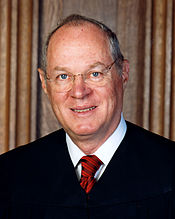all material on this blog is directed to members of the general public and is not intended to be read by my fellow Committee members, nor do I intend for any readers to convey such material directly or indirectly to my fellow Committee members.
If criticizing, questioning, commenting or talking about any government entity is political speech, it would be protected speech.
Something that came up during the Citizen's United Supreme Court case:
Majority opinion[edit]
Justice Kennedy's majority opinion found that the BCRA §203 prohibition of all independent expenditures by corporations and unions violated the First Amendment's protection of free speech.[25] The majority wrote, "If the First Amendment has any force, it prohibits Congress from fining or jailing citizens, or associations of citizens, for simply engaging in political speech."[26]
Justice Kennedy's opinion also noted that because the First Amendment does not distinguish between media and other corporations, the BCRA restrictions improperly allowed Congress to suppress political speech in newspapers, books, television, and blogs.[5] The Court overruled Austin, which had held that a state law that prohibited corporations from using treasury money to support or oppose candidates in elections did not violate the First and Fourteenth Amendments. The Court also overruled that portion of McConnell that upheld BCRA's restriction of corporate spending on "electioneering communications". The Court's ruling effectively freed corporations and unions to spend money both on "electioneering communications" and to directly advocate for the election or defeat of candidates (although not to contribute directly to candidates or political parties).
The majority ruled that the Freedom of the Press clause of the First Amendment protects associations of individuals in addition to individual speakers, and further that the First Amendment does not allow prohibitions of speech based on the identity of the speaker. Corporations, as associations of individuals therefore, have free speech rights under the First Amendment. Because spending money is essential to disseminating speech, as established in Buckley v. Valeo, limiting a corporation's ability to spend money is unconstitutional because it limits the ability of its members to associate effectively and to speak on political issues.
Disclaimer
posted by Jeff Bennett

No comments:
Post a Comment